Training and Onboarding
Aspirion is a healthcare revenue cycle company that helps providers recover complex and denied claims. Associates rely on Compass to do this work, but the training and onboarding system created confusion and slowed proficiency. I led a redesign that turned training into an empowering experience through stakeholder co-creation and systems thinking.
-
Visualize the current training system: Mapped the existing training ecosystem to uncover root causes.
-
Humanize the system: Engaged stakeholders through interviews and co-design sessions to identify leverage points and align goals.
-
Redesign the system: Prototyped and tested redesigned solutions.
Visualize the System
We visualized the system with network, process, and problem maps to understand complex relationships, analyze workflows from multiple perspectives, and address root causes rather than symptoms.
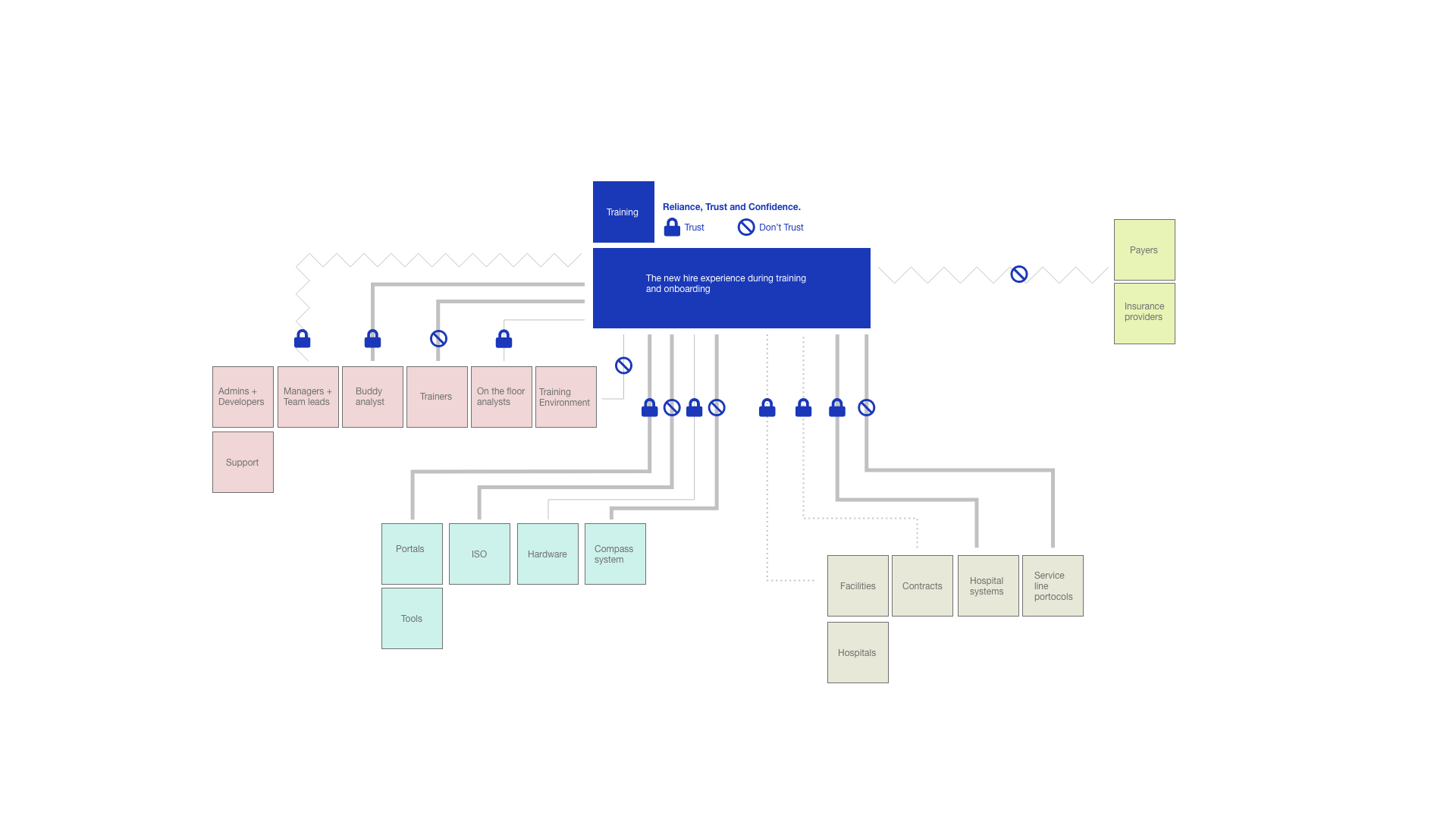
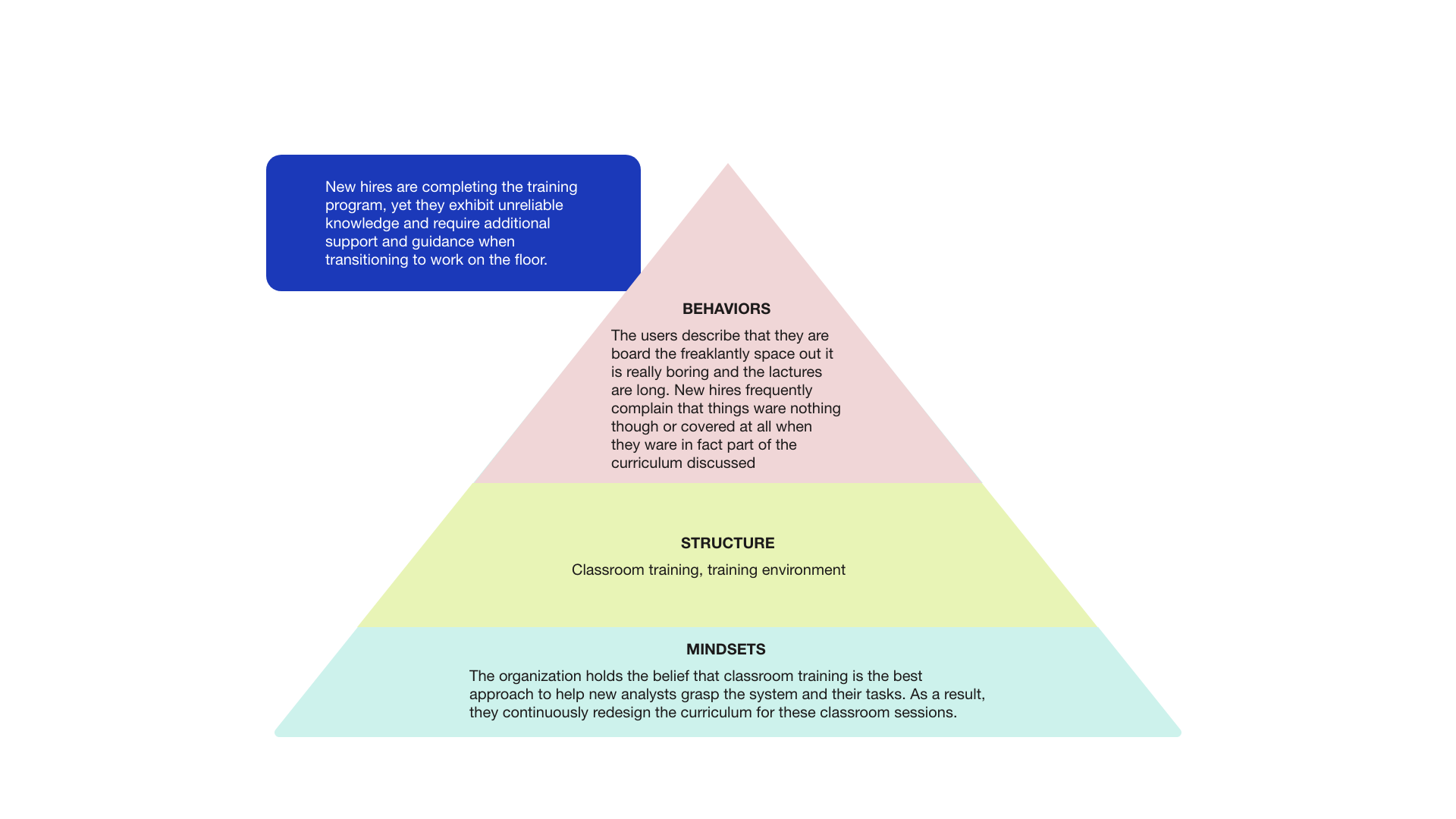
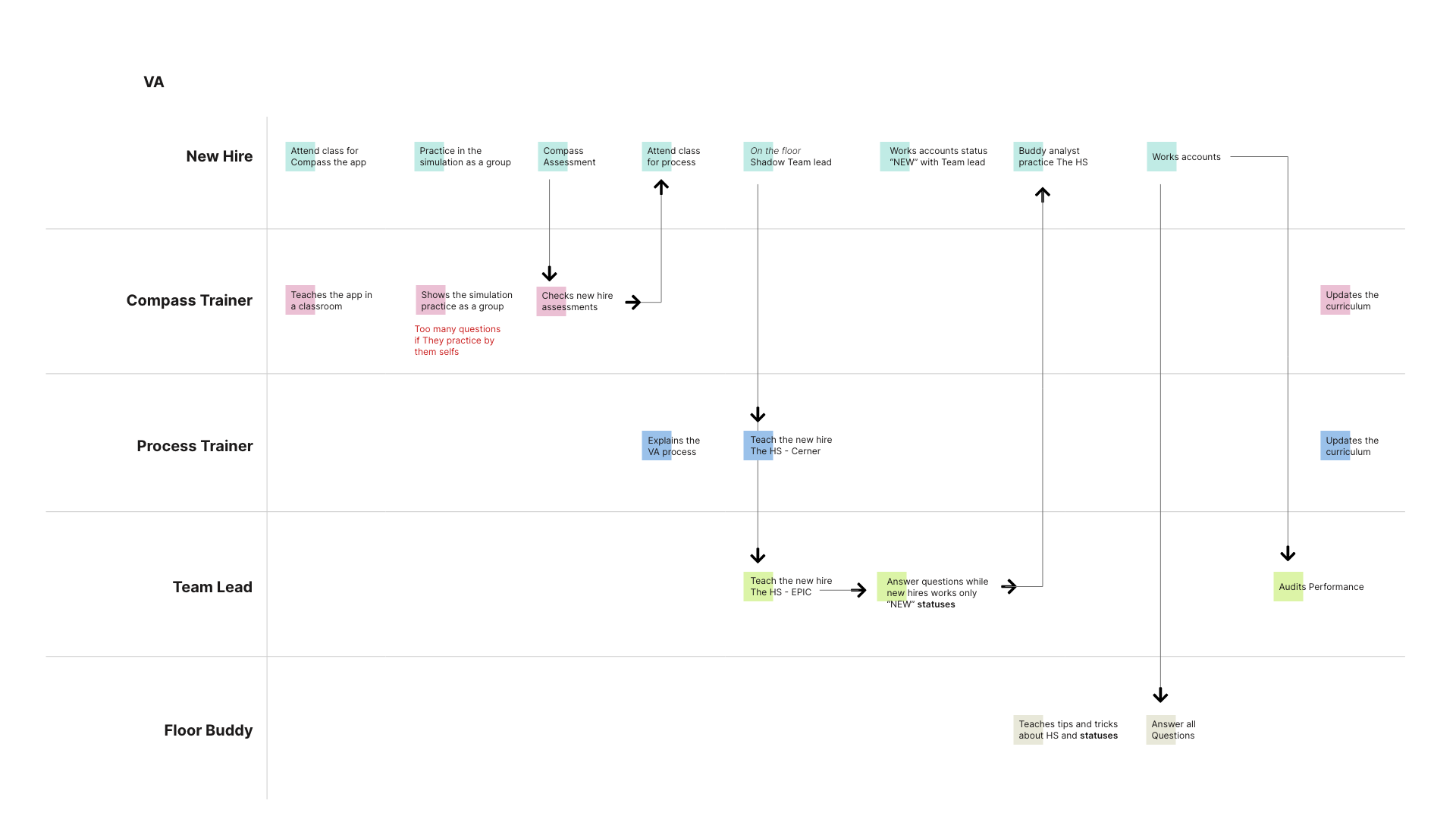
Humanize the System
User interviews revealed deep mistrust in the training system. New hires viewed it as outdated, unreliable, and inconsistent. Most relied on personal networks over official resources. By mapping these behaviors, we reframed the challenge.
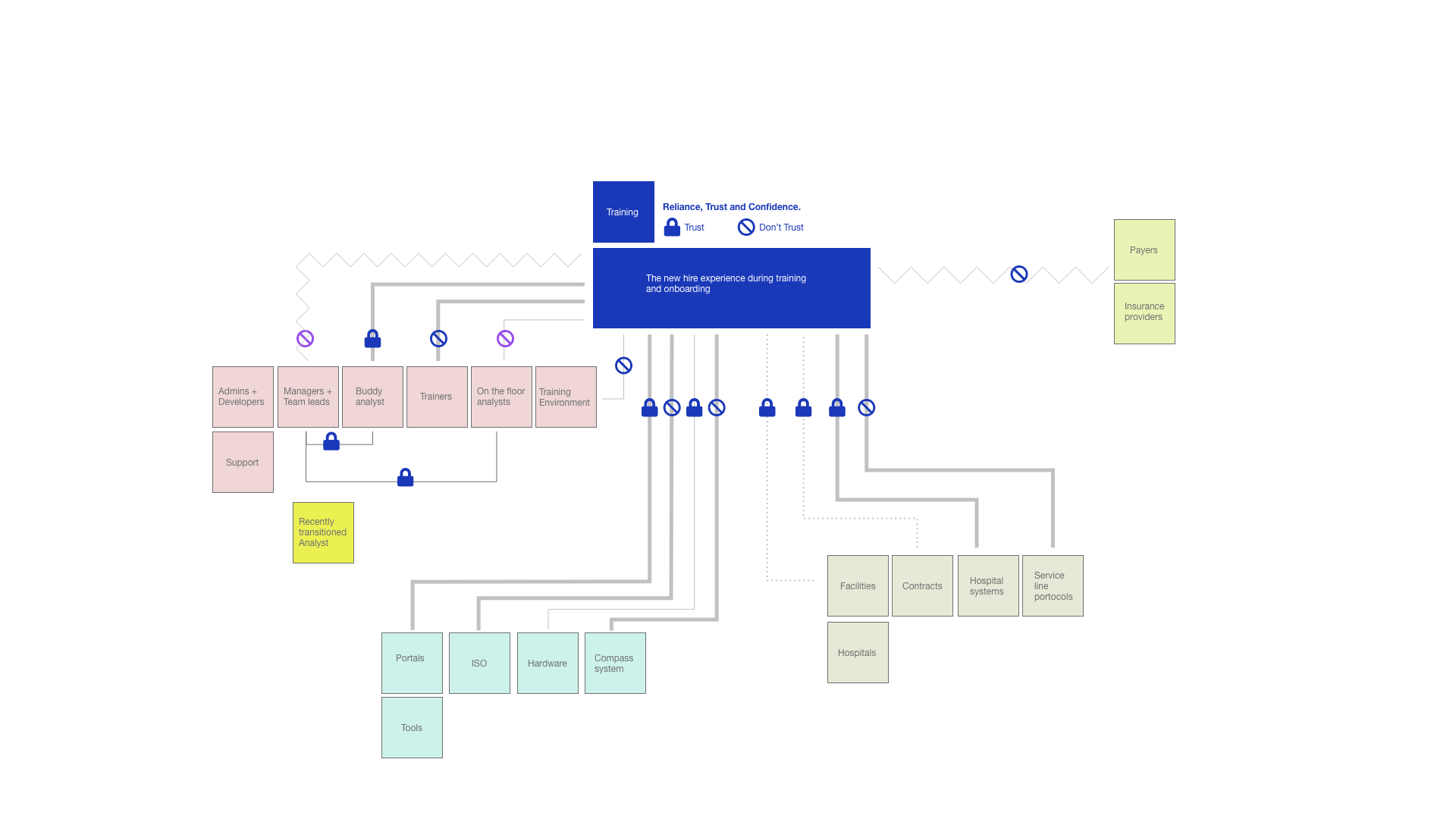
Updated Network Map after further conversations
The Redesign
Prioritization Matrix
We met with stakeholders to review the maps and share insights. Through co-design sessions, we identified opportunities across structure, processes, infrastructure, talent, and incentives.
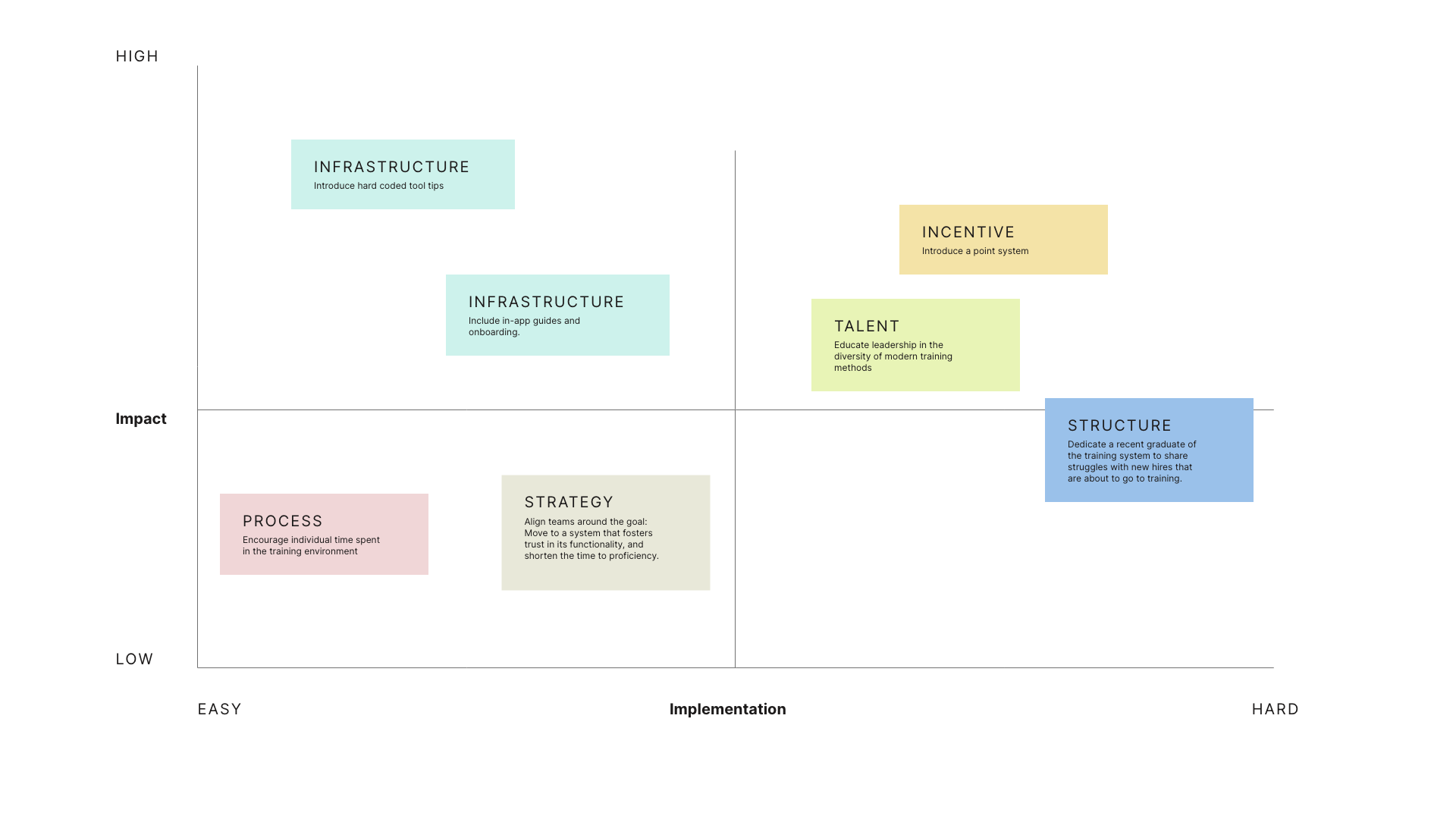
Prioritization Matrix
Next Steps
Given users’ familiarity with in-app onboarding elsewhere, we proposed enhancing the application with similar techniques—rated medium effort with high potential impact. We evaluated integrating a third-party tool versus building a custom in-house solution.
Identify a Potential Prototype
We tested several onboarding tools, including Chameleon and Pendo. Chameleon supported early needs. After acquisition and a larger budget, we moved to Pendo for stronger analytics.

Prototype & Testing
Objectives
When prototyping, the goal is not only to validate the idea but also to confirm how it fits within the system and plan next steps strategically.
Reflection
Findings indicate that in-app onboarding and guides improve outcomes and user confidence. We also observed vocabulary discrepancies across teams, highlighting the need to standardize terminology for clearer communication.